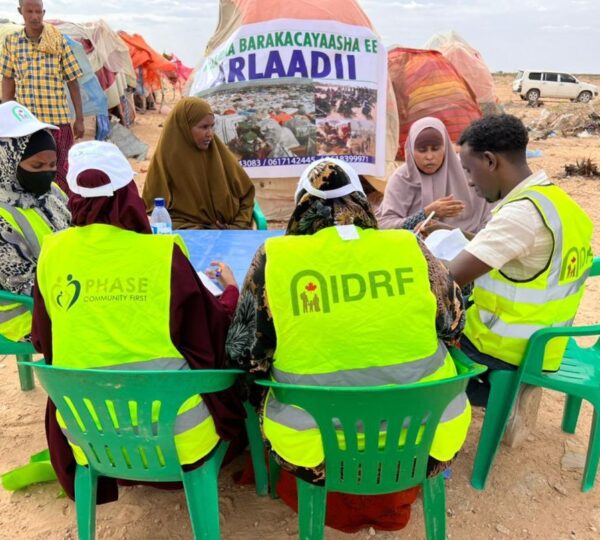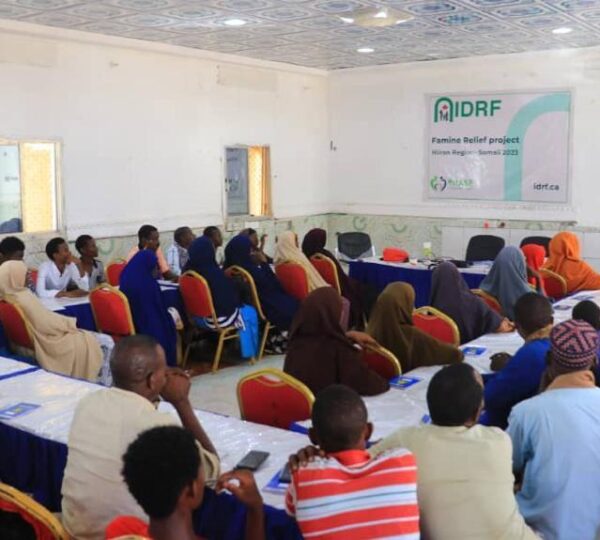Embracing Digital Transformation in Humanitarian Aid: The Future is Now
In an era where technology continues to evolve at a breakneck pace, humanitarian organizations are faced with the pressing challenge of staying relevant, effective, and impactful. As digital transformation takes center stage across every sector, NGOs must not only keep up but also harness the power of technology to enhance their mission. The question is no longer whether NGOs should embrace technology, but how they can leverage it to amplify their impact and improve the delivery of services.
At PHASE Organization, we believe that digital transformation is the key to driving positive change, increasing efficiency, and scaling solutions that can meet the demands of today’s complex global challenges. In this blog, we will explore why digital transformation is vital for the NGO world, how it’s changing the landscape of humanitarian aid, and how PHASE Organization is embracing these changes.
The Changing Landscape of Humanitarian Aid: Adapting to the Digital Age
In recent years, humanitarian organizations have seen the benefits of adopting digital tools—from data collection and real-time reporting to remote monitoring and digital education platforms. The COVID-19 pandemic, in particular, has accelerated this transformation, showing just how vital technology is for maintaining operations and reaching beneficiaries when traditional methods fail.
However, this shift towards digital tools isn’t just about convenience or keeping up with the times. It’s about meeting new demands and creating solutions that are efficient, cost-effective, and transparent.

Why Digital Transformation is Critical for NGOs Today
There are several reasons why NGOs, including PHASE Organization, must invest in digital transformation:
-
Improved Efficiency
Digital tools help streamline internal operations, automate tasks, and reduce the need for manual work. This increases productivity and frees up valuable resources that can be redirected towards impact-focused activities. -
Real-Time Monitoring and Reporting
With real-time data and digital reporting tools, NGOs can track their projects more accurately and adjust interventions as needed. This increases transparency and accountability, both to donors and the communities they serve. -
Greater Reach and Accessibility
Digital platforms make it possible to reach populations in remote or hard-to-reach areas. Whether it’s through online education, telemedicine, or mobile apps, technology helps bridge geographical gaps and expand access to services. -
Data-Driven Decision Making
Collecting and analyzing data allows NGOs to make informed decisions that are tailored to the needs of their beneficiaries. Data analytics enable real-time insights into project performance and the ability to adjust strategies dynamically.

Examples of Digital Transformation in the NGO Sector
The NGO sector is already seeing innovative examples of digital transformation in action:
-
Mobile Health Initiatives: NGOs are utilizing mobile health (mHealth) platforms to provide healthcare information and consultations remotely, especially in rural areas where healthcare facilities are limited.
-
Cash Transfers and Digital Payments: Digital payment systems, such as mobile money, allow NGOs to provide cash transfers to vulnerable populations directly, ensuring aid reaches those who need it most without delays or administrative bottlenecks.
-
Blockchain for Transparency: Some organizations are exploring blockchain technology to improve transparency and traceability in humanitarian aid distribution, ensuring that funds and goods are delivered effectively.
-
Remote Learning Platforms: NGOs working in education are increasingly turning to online education platforms to reach displaced children and youth who might otherwise miss out on learning opportunities.
How PHASE Organization is Leading the Way
At PHASE Organization, we are embracing digital transformation as part of our ongoing commitment to innovation and efficiency in humanitarian work. We are incorporating the latest technology into our operations in the following ways:
-
Data Collection and Impact Monitoring: We utilize digital data collection tools to gather real-time information about our programs, ensuring that our interventions are both effective and responsive.
-
Capacity Building: We are investing in digital training programs for our staff and partners to equip them with the skills they need to adapt to new technologies and improve service delivery.
-
Digital Platforms for Beneficiary Engagement: By integrating mobile apps and SMS services, we are improving communication with beneficiaries and ensuring they can access support and resources, no matter where they are.
Challenges and the Road Ahead
While the benefits of digital transformation are clear, there are also significant challenges to overcome. Many NGOs, particularly those working in low-resource settings, face barriers such as limited internet access, low digital literacy, and financial constraints.
To truly harness the potential of digital transformation, it’s essential that NGOs work collaboratively with donors, tech companies, and local governments to bridge these gaps. PHASE Organization is committed to building partnerships that enable us to provide the necessary tools and support for successful digital initiatives.
The Future of Humanitarian Aid: A Digital-First Approach
As the world continues to evolve, so too must the ways we deliver humanitarian aid. The future of humanitarian assistance is undoubtedly digital, and those organizations that embrace this change will be better positioned to respond quickly, efficiently, and transparently.
At PHASE Organization, we are excited to be at the forefront of this transformation. By embracing technology, we can ensure that our work remains impactful, scalable, and sustainable, creating a better future for the communities we serve.
Digital Transformation is Not Just a Trend – It’s the Future
In conclusion, as NGOs like PHASE Organization embrace digital transformation, we are not only enhancing our capabilities but also shaping the future of the humanitarian sector. Technology allows us to serve better, reach more people, and create lasting impact. The question now is not whether we should transform, but how quickly we can adapt to the digital revolution and make a difference on a larger scale.
Stay tuned for more updates on how PHASE is leading the way in digital innovation for humanitarian work!


